Climate at the 2022 midterms: Where Senate candidates stand and what’s at stake
Lip-service, scapegoating, both-sideism and ‘good air/bad air’ arguments – climate reporter Ethan Freedman finds it all in the 2022 midterm Senate races
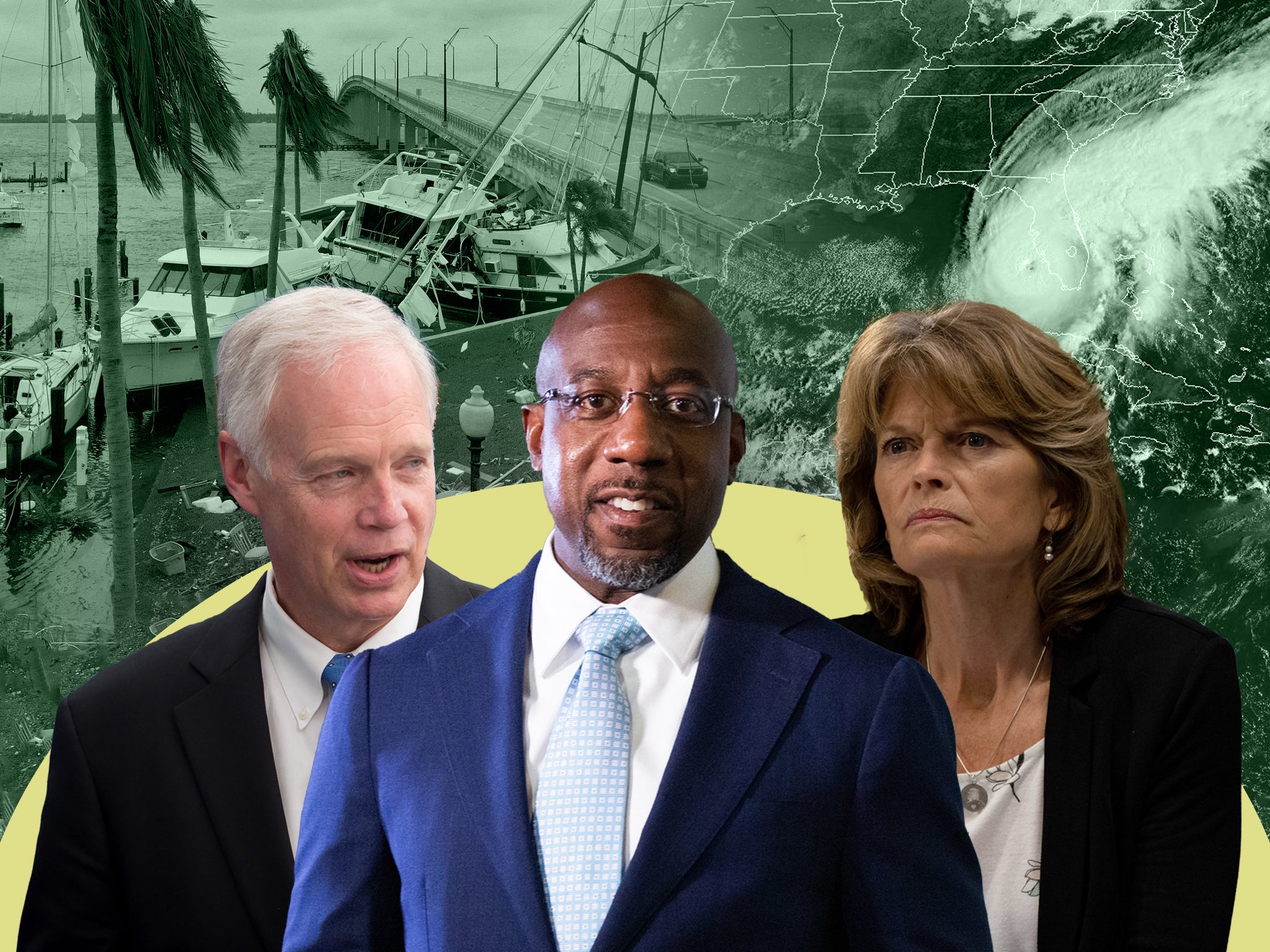
With rising inflation, the global energy crunch and the end of Roe v Wade, the climate crisis has taken a backseat in the 2022 midterm elections, even in another year of devastating wildfires, droughts and storms like Hurricane Ian.
One bright spot has been the Inflation Reduction Act — in essence, the most significant piece of climate legislation in US history. The law, which passed the Senate on a razor-thin Democratic margin, will see billions of dollars in investment toward renewable energy and plans to help communities adapt to ever-worsening extremes.
But despite this major win for the Biden administration, polling indicates that Republican candidates have gained strength in a number of key races, putting Democratic control of Congress at risk and potentially stymieing ambitious climate policy for the next two years.
With Election Day looming, The Independent examines the climate stances of Senate candidates – whose wins will grant them the power to make or break legislation, confirm judges and approve international treaties.
Denial 2.0
Outright denial of the science – that humans are causing the climate crisis – is less prominent than it once was on the campaign trail. However many candidates still pay lip service to climate action while supporting the fossil fuel industry and/or scapegoating other countries.
In some battleground races, the candidates are poles apart. In Wisconsin, Democrat Mandela Barnes, the current Lieutenant Governor who is running for the Senate, said at a recent debate that the country needs to “reduce carbon emissions” and “move towards a clean energy economy”.
“The climate crisis is already here. It’s impacting places all over the country, all over the globe, Wisconsin specifically,” he said.
At the same debate, his Republican opponent, Senator Ron Johnson, said that “the climate has always changed, always will change, so I don’t deny climate change,” using language that echoes some efforts to downplay the seriousness of the climate crisis.
In 2021, Johnson was also caught on tape telling a group of Republicans that the climate crisis was “bulls***”.
Johnson’s campaign did not respond to a request for comment from The Independent.
At least seven other Senate candidates have recently appeared to downplay or doubt climate science. In July, JD Vance, Republican nominee in Ohio, agreed with a conservative radio talk show host who said he didn’t think there wasn’t a climate crisis.
“No, I don’t think there is, either,” Mr Vance said on the show. “And even if there was a climate crisis, I don’t know how the way to solve it is to buy more Chinese-manufactured electric vehicles. The whole EV thing is a scam, right?”
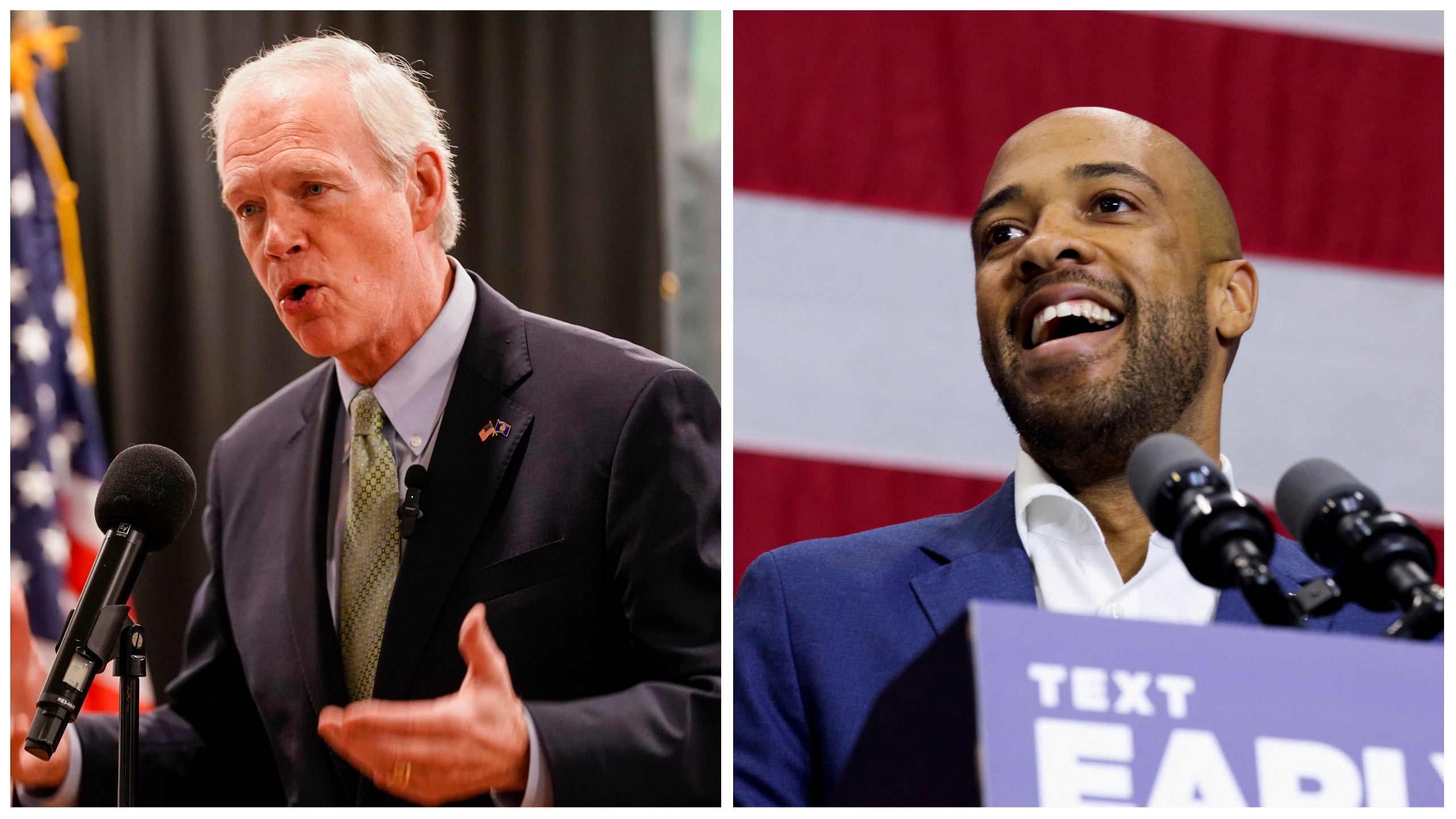
In Pennsylvania, GOP nominee Dr Mehmet Oz claimed earlier this year that carbon in the atmosphere wasn’t a problem, E&E News reported. (Every major climate report has found that excess carbon in the atmosphere is what is rapidly warming the planet and triggering more heatwaves and extreme weather).
Neither Mr Vance nor Dr Oz’s campaign websites mention climate change, and their teams did not respond to requests for information on the candidate’s plans to tackle the crisis.
Both Pennsylvania and Ohio are tight races that could tip the balance of power in the Senate to Republicans. Yet, while those Democratic candidates have taken a more progressive stance on climate than their opponents, they’ve also championed the fossil-fuel industry. The influential International Energy Agency has been clear that there can be no new fossil fuel infrastructure if the world wants to meet its goals of net-zero emissions by 2050, and avoid more catastrophic climate impacts.
Democrat John Fetterman, Pennsylvania’s current lieutenant governor, has told voters this year that he supports fracking for natural gas, a major industry in parts of his home state. During his last campaign in 2016, he supported a statewide moratorium on the controversial drilling method until tighter environmental regulations were put in place, WESA reported.
While natural gas emits less planet-heating carbon dioxide than oil and coal, it’s still a fossil fuel. And it has another major downside - drilling for gas can emit methane, a greenhouse gas about 80 times more potent than carbon dioxide over 20 years, and a major problem for getting a handle on the climate crisis in the short term.
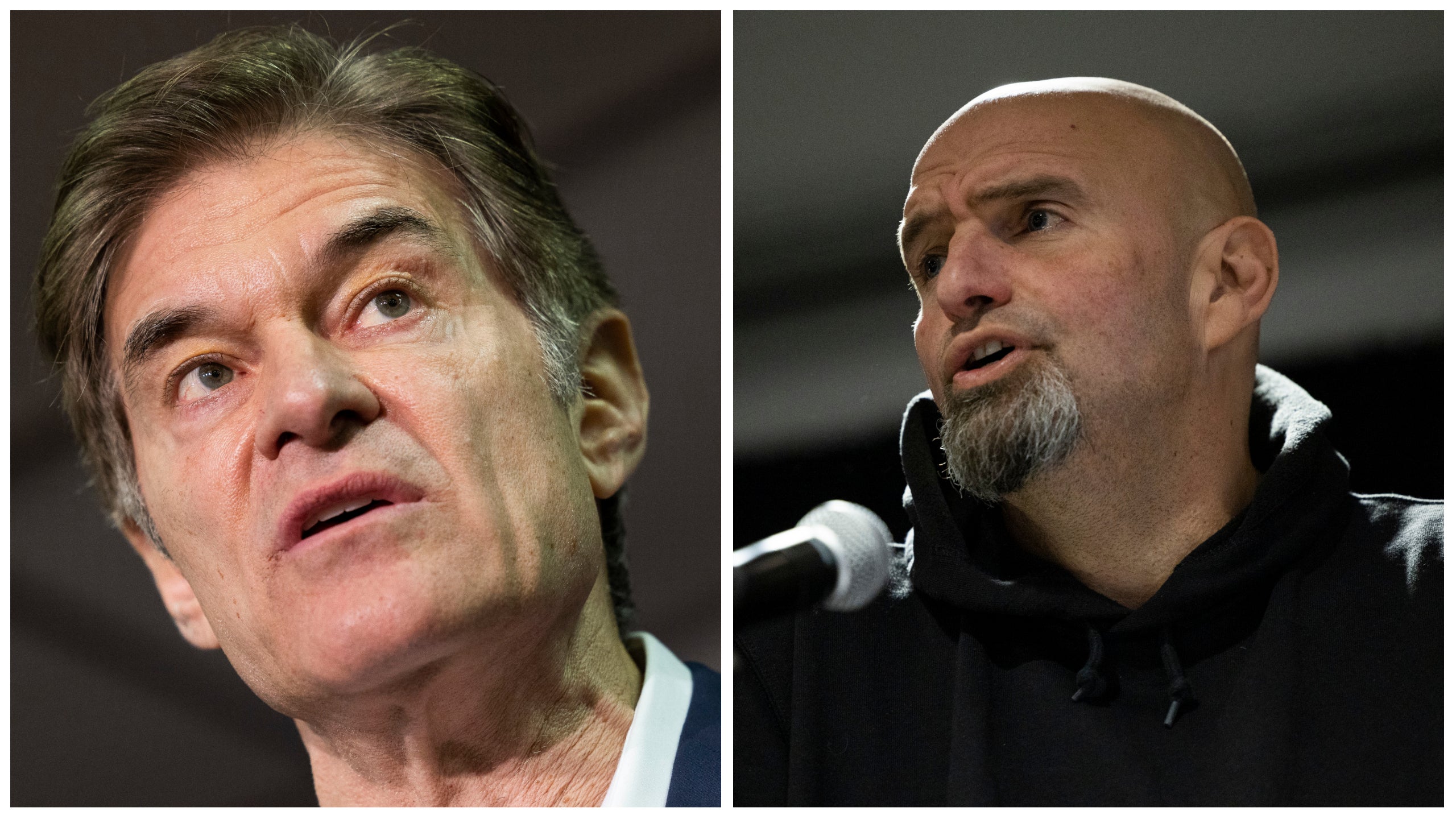
Fracking involves pumping a chemical mixture deep underground to release gas deposits and has led to growing concerns over water and air pollution. In Pennsylvania specifically, a recent study linked fracking with a higher risk of childhood leukaemia.
In the neighbouring state of Ohio, Tim Ryan, the Democratic nominee for Senate, has also embraced natural gas production. The state is the sixth-largest producer of the fossil fuel in the US.
The lean-in on the fossil fuel industry appears at odds with these Democrats’ calls to address the climate crisis, which both Mr Fetterman’s and Mr Ryan’s campaign websites address. Neither campaign could be reached for information on the candidates’ climate policies.
Climate and fossil fuels, together
A number of Republican Senate candidates also take this “both sides” approach – talking about tackling climate issues while backing the fossil-fuel industry.
Case in point is Alaskan Senator Lisa Murkowski, a member of the bipartisan Climate Solutions Caucus. Last year she wrote in the Anchorage Daily News about the devastating impacts of rapid warming on the US state, including coastal erosion and declining fish populations.
“Climate change is real, we need to act, and we need to work together,” Senator Murkowski wrote.
Yet Ms Murkowski continues to support fossil fuel development in Alaska, a major oil-producing state, including in part of the Arctic National Wildlife Refuge, a giant nature reserve on the state’s Arctic coast.
Senator Murkowski is facing challengers on both the right and left, Democratic nominee Patricia Chesbro and fellow Republican Kelly Tshibaka.
On climate, Ms Chesbro told the Alaska Beacon that “we should halt further oil development in new areas and look for and fund renewable energy strategies”. And Ms Tshibaka has called for less energy regulation and voiced support for both fossil fuels and renewable energy.
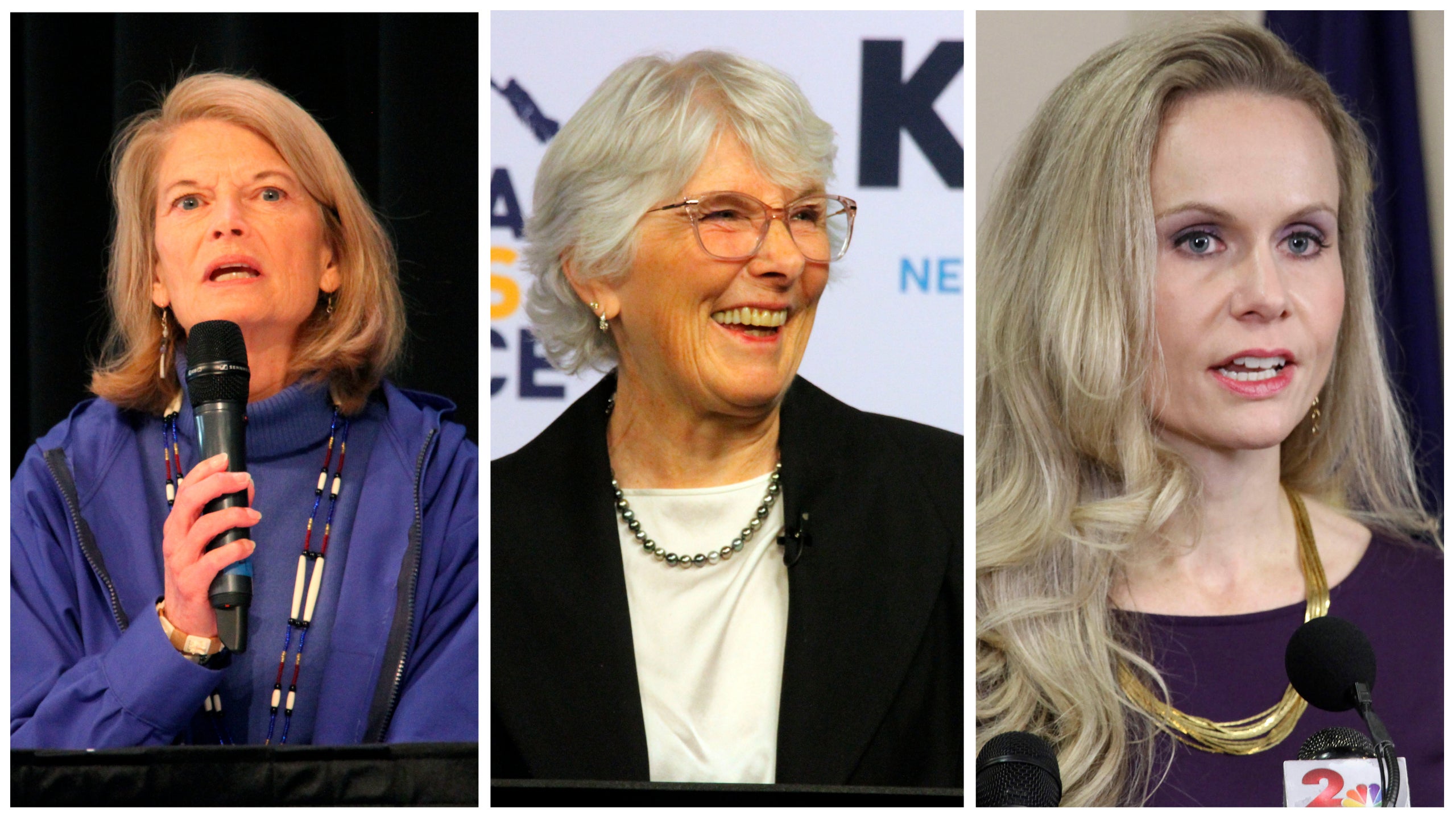
Some Senate races feature less of a gulf between candidates on the climate crisis. Similarly to Sen. Murkowski, Joe O’Dea, the Republican nominee in Colorado, has stated both the need to reduce emissions and expand renewables, while supporting fossil fuels.
His Democratic opponent maintains a similar tack. At a debate last month, Senator Michael Bennet touted his support for both renewable energy and natural gas, according to Colorado Newsline.
But Mr Bennet also barbed Mr O’Dea for not supporting the Inflation Reduction Act, the outlet reported.
Blaming China
The climate crisis remains a divisive issue among voters, and for candidates hoping to avoid this political hot potato, pivoting off-topic can be the best option – particularly if another country can be scapegoated.
In Wisconsin, Republican Ron Johnson quickly shifted to talking about other countries’ emissions when asked about the climate crisis at the recent debate.
“The question is, can you really do anything about it when China, when India, they’re going to be burning fossil fuels, America’s going to have burn fossil fuels,” he said.
Don Bolduc, a Republican challenging Senator Maggie Hassan of New Hampshire, gave a similar answer to New Hampshire Public Radio (NHPR) in September.
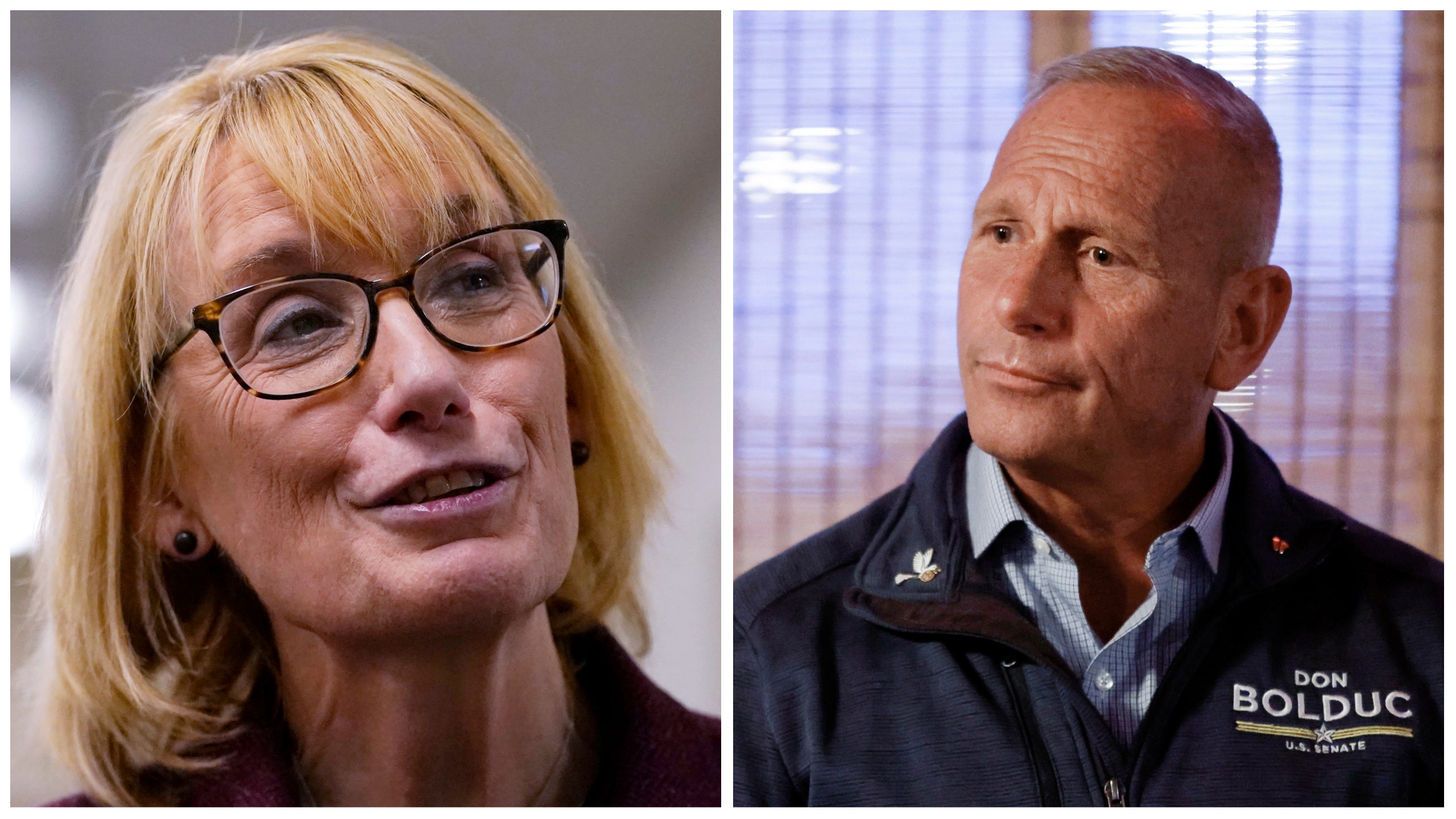
“Climate change is something that I’m always very concerned about,” Mr Bolduc said, then shifted focus away from US responsibility.
“At this point, I’m very comfortable with America,” Mr Bolduc told NHPR. “What I’m not comfortable with is China, Russia, North Korea, Iran, and how they pollute and how they hurt the environment.”
While the climate crisis is a global issue, the US is the world’s second-largest carbon polluter and contributes more per capita emissions than the vast majority of countries, including China, the world’s largest emitter.
Mr Bolduc’s campaign site does not address the climate crisis or have policies to tackle it, but says he supports expanding fossil fuels. Senator Hassan, however, notes her support for “clean energy” on her campaign website. Neither campaign could be reached for further information.
‘Don’t we have enough trees around here?’
Other Senate candidates have given somewhat inscrutable answers on the climate crisis. Herschel Walker, the former college football star and Republican nominee from Georgia, has made a series of wild claims on environmental issues on the campaign trail.
“Since we don’t control the air, our good air decided to float over to China’s bad air so when China gets our good air, their bad air got to move,” Mr Walker said, in response to a question about the Green New Deal.
“So it moves over to our good air space. Then now we got to clean that back up, while they’re messing ours up.”
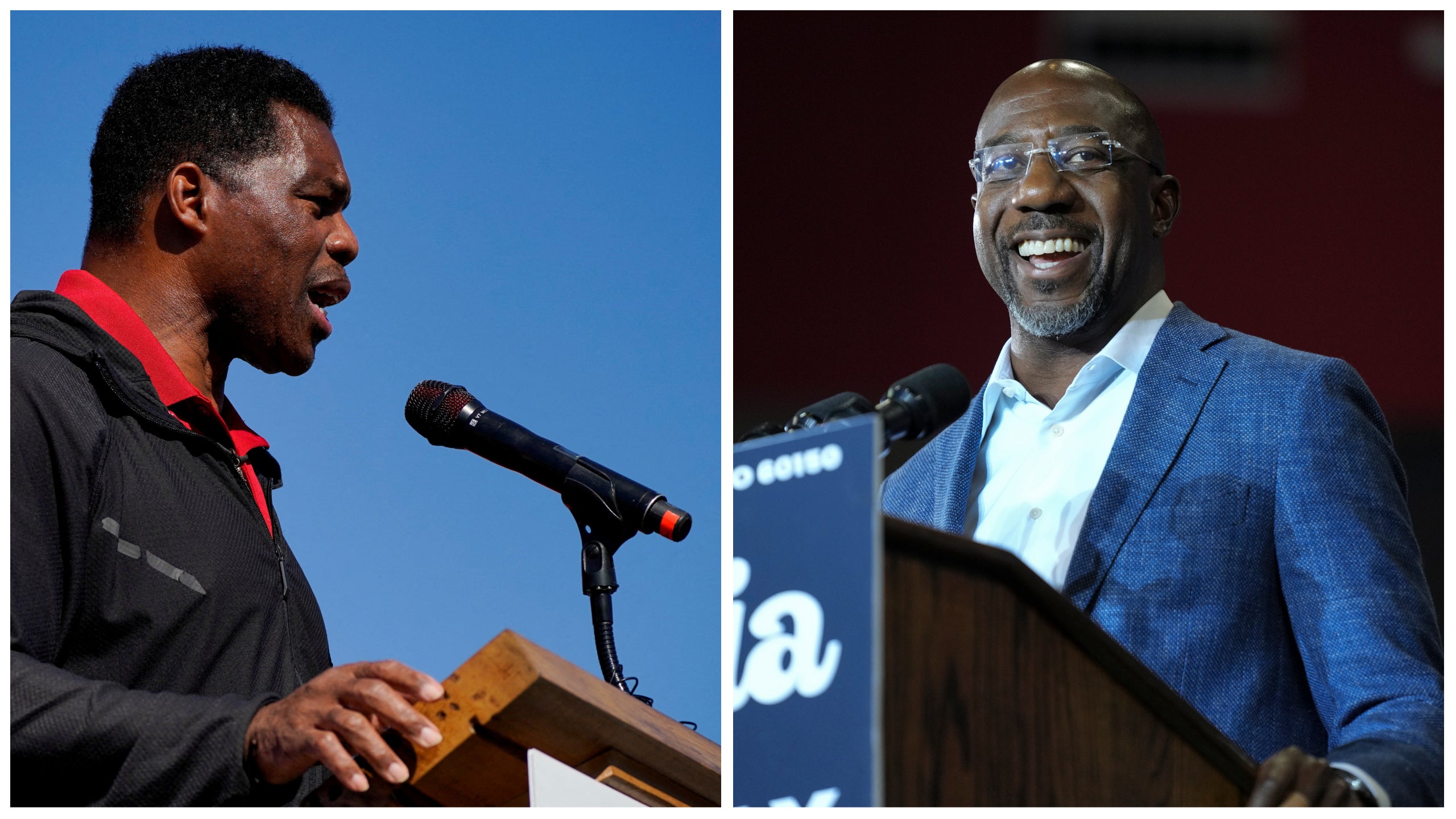
He has also criticised the Inflation Reduction Act for allocating money toward tree planting, in a reference to the law’s $1.5bn allocation for “tree planting and related activities”.
“Don’t we have enough trees around here?” Mr Walker asked.
Mr Walker is challenging the state’s Democratic Senator, Reverend Raphael Warnock, whose campaign website highlights the senator’s efforts in Congress to boost solar power.
“Reverend Warnock believes we must accept the science, invest in infrastructure, and combat the climate crisis that is already at our door,” his website says.
Mr Walker’s campaign website does not mention the climate crisis. Neither campaign could be reached for comment.
Americans are heading to the polls concerned but still divided on the climate crisis. A 2021 survey found that 70 per cent of Americans were either “very” or “somewhat” worried about the climate, the highest on record.
A Pew poll this year also found that while 65 per cent of Democrats said the climate crisis should be a top priority for lawmakers in Washington, only 11 per cent of Republicans agreed.
And despite meaningful steps by Congress, the US is still far behind on what scientists and policy experts say is needed to prevent catastrophic warming.
Independent analysts at Climate Action Tracker rate US climate policies and action so far as “insufficient” - even after taking the Inflation Reduction Act into account.
Join our commenting forum
Join thought-provoking conversations, follow other Independent readers and see their replies
Comments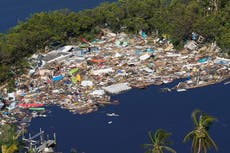
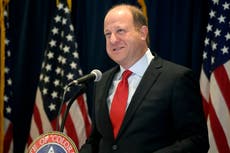

Bookmark popover
Removed from bookmarks